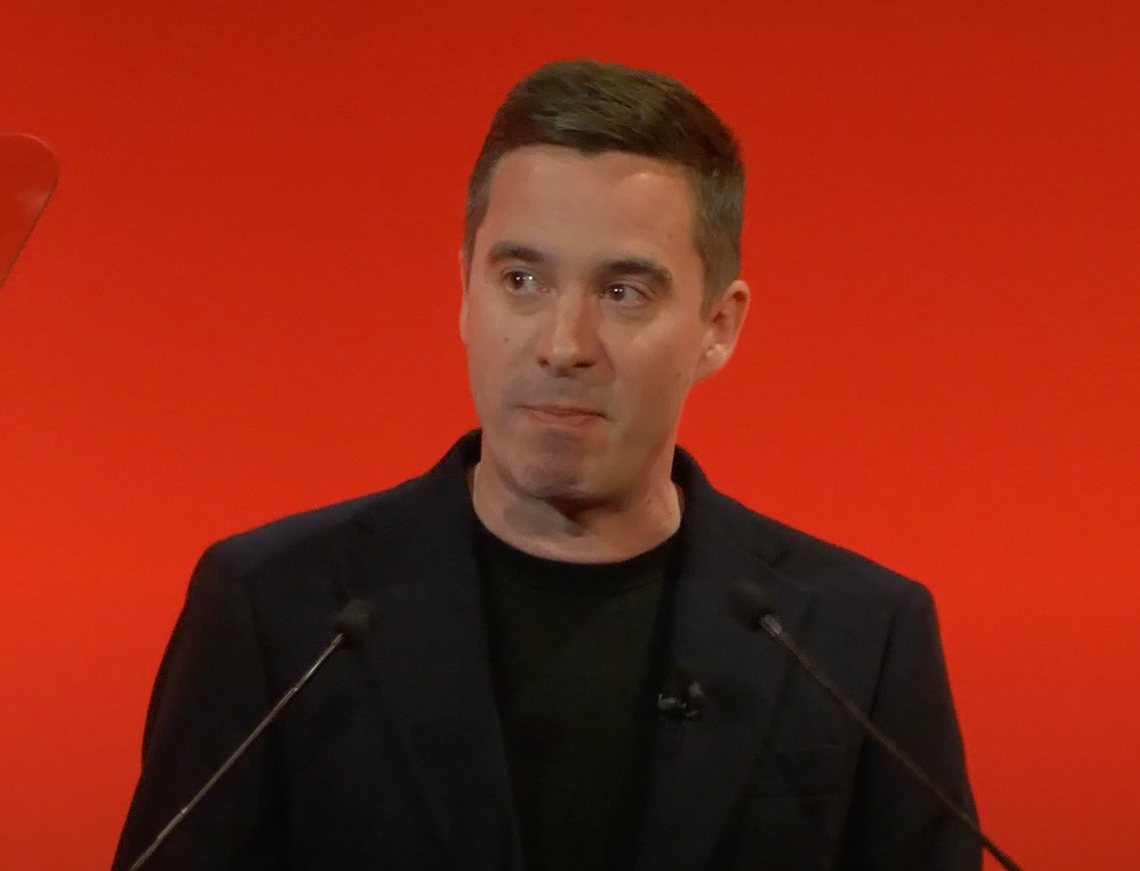James Graham calls for greater working-class representation in TV during MacTaggart lecture
Graham called social class ‘everyone’s least favourite diversity and representation category’

Your support helps us to tell the story
From reproductive rights to climate change to Big Tech, The Independent is on the ground when the story is developing. Whether it's investigating the financials of Elon Musk's pro-Trump PAC or producing our latest documentary, 'The A Word', which shines a light on the American women fighting for reproductive rights, we know how important it is to parse out the facts from the messaging.
At such a critical moment in US history, we need reporters on the ground. Your donation allows us to keep sending journalists to speak to both sides of the story.
The Independent is trusted by Americans across the entire political spectrum. And unlike many other quality news outlets, we choose not to lock Americans out of our reporting and analysis with paywalls. We believe quality journalism should be available to everyone, paid for by those who can afford it.
Your support makes all the difference.Playwright and screenwriter James Graham has hit out at the lack of working-class people in the TV industry, as he delivered the Edinburgh TV Festival’s prestigious MacTaggart lecture on Wednesday (21 August).
Graham, born in Mansfield, Nottinghamshire, referred to his own upbringing and state-school education when making the case for a more multi-faceted approach to diversity.
He referred to class as “everyone’s least favourite diversity and representation category” compared to “more visible, sometimes simpler to define areas of diversity” that he said “fire up the activist in us”.
Citing statistics revealed in a recent report by Creative Industries Policy and Evidence Centre at the University of Sheffield, he said that only 8 per cent of people in television are working-class – figures which the report suggested meant class representation was at the lowest it had been in ten years.
The Dear England writer said that this limited the number of people bringing their “experiences, outlook, stories, culture” in a medium that is “meant to reflect all those things back to us”.
The Emmy-nominated writer of Brexit: The Uncivil War called for greater attention to be paid to challenges of social mobility, particularly in defining it as a concept.
“We are squeamish about defining it, and as a result, we quite often still exclude it from industry measurements around diversity,” he continued.
“I could be wrong, but compared to other areas of under-representation, when it comes to class, I feel like we just don’t feel it, as much, in our bones.”

He suggested that the aversion to discussions of class could be “that British embarrassment over ‘money’ thing; we’re uncomfortable.”

Watch Apple TV+ free for 7 days
New subscribers only. £8.99/mo. after free trial. Plan auto-renews until cancelled

Watch Apple TV+ free for 7 days
New subscribers only. £8.99/mo. after free trial. Plan auto-renews until cancelled
But he justified the demand for diversity as a case for better business, in addition to visibility, as he explained that working-class audiences make up the bulk of TV audiences.
“Working-class audiences have been measured to be the demographic which consume the most hours of television. It is a category of representation with the largest disparity between makeup of the country and makeup of our industry yet it is often the only significant category not to be formally included in most of our standard measurements of diversity,” Graham said.
“They are the largest potential audience to reach for the content that we make yet they are they are the demographic least able to find a foothold in the industry to bring their experiences.”
Using the examples of diversity monitoring forms, he explained that he had only once been asked for his parent’s occupation when being considered for judging panels.
Graham explained he had often had to find other ways of mentioning his social class so that it would be considered, “given that class no obvious visible indicators or is a protected characteristic,” and had been left in confusion over his own class status.
“I meant it when I said that class isn’t just money, the jobs that your parents had, it’s part of what forged you,” he said. “In other words a key part of your coding, your morality, your sense of self, which creates a philosophical quandry. In no other part of your identity do you become less yourself as your circumstances change.”
Describing the effects of “representative television” on his own experience, he recalled the positive influence of diverse stories.
“I thought the whole world was full of people who spoke like, thought like, felt like my family. I’m not sure the same can entirely be said now.”
The James MacTaggart lecture has been the highlight of the Edinburgh TV Festival since 1976, and often covers topics provoking conversation. Recent speakers include Michaela Coel, Louis Theroux and Emily Maitlis.
Join our commenting forum
Join thought-provoking conversations, follow other Independent readers and see their replies
Comments